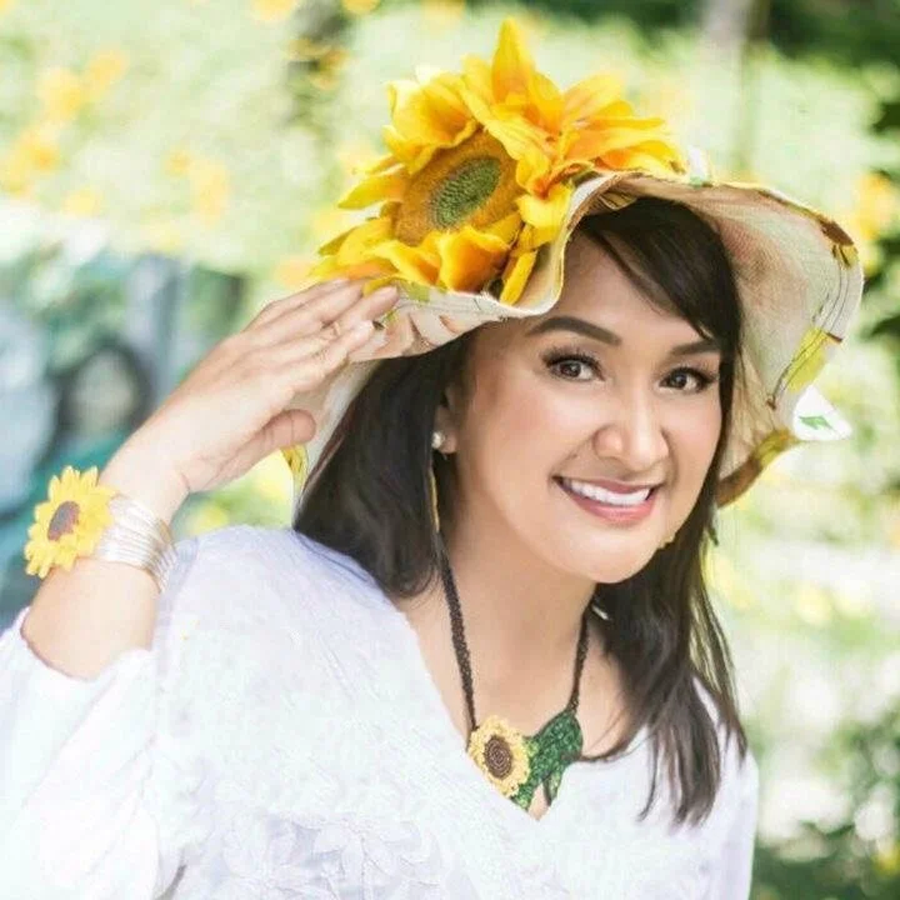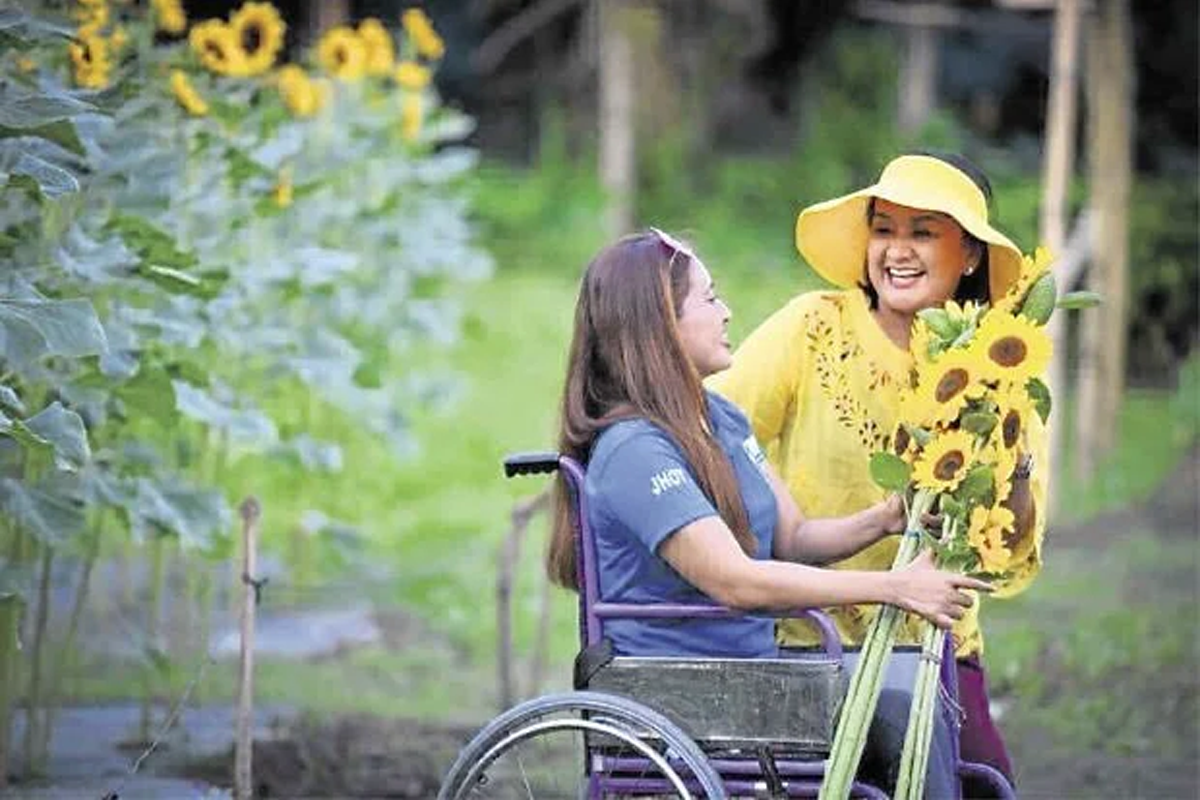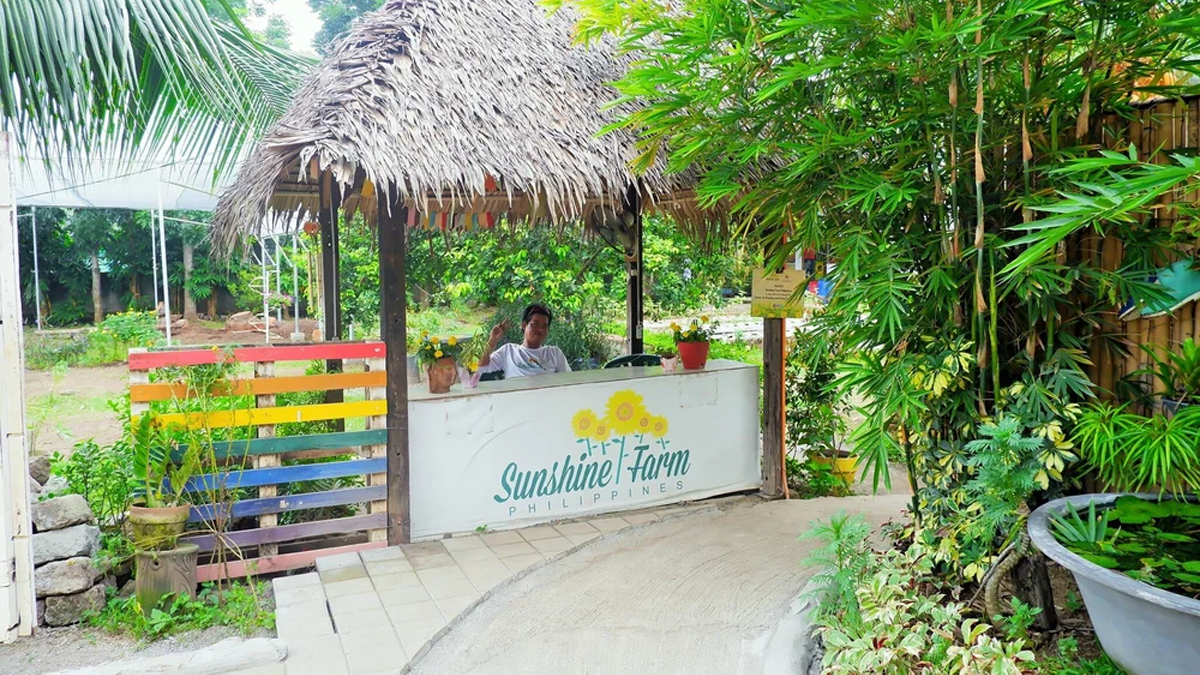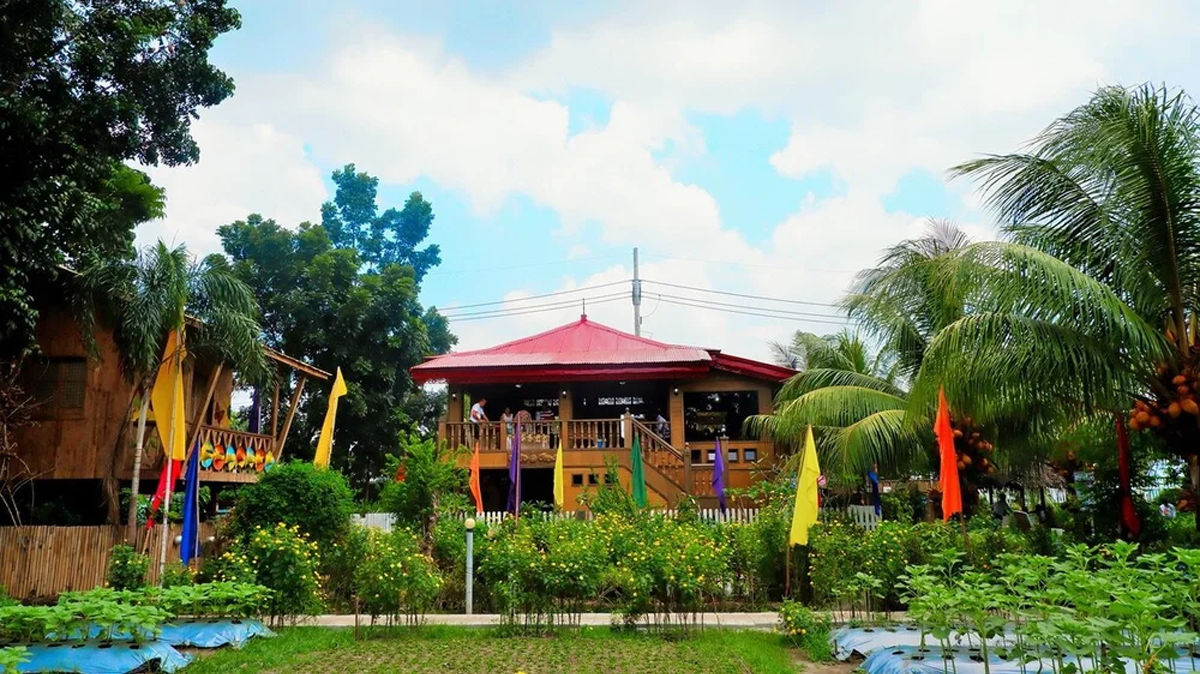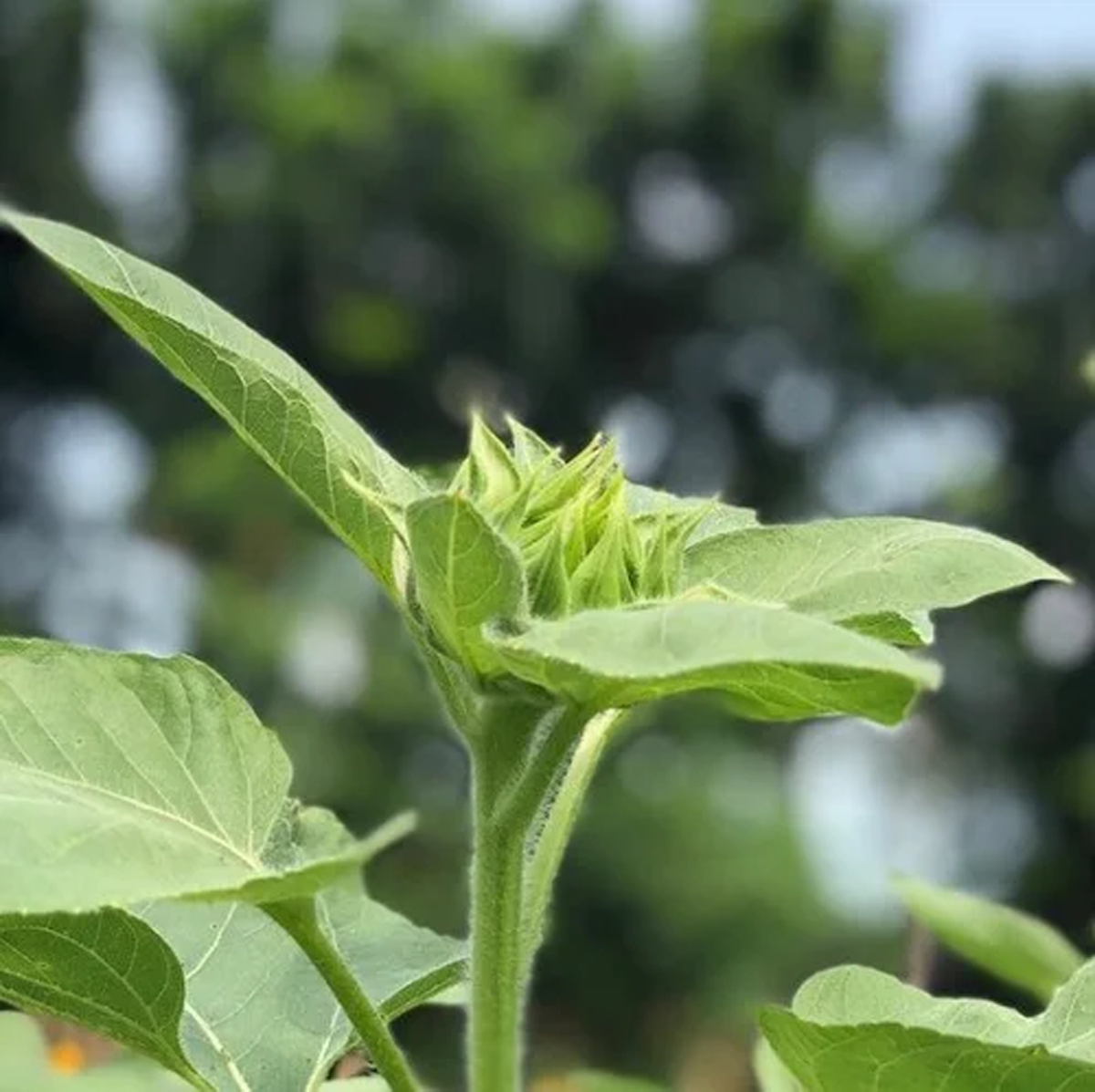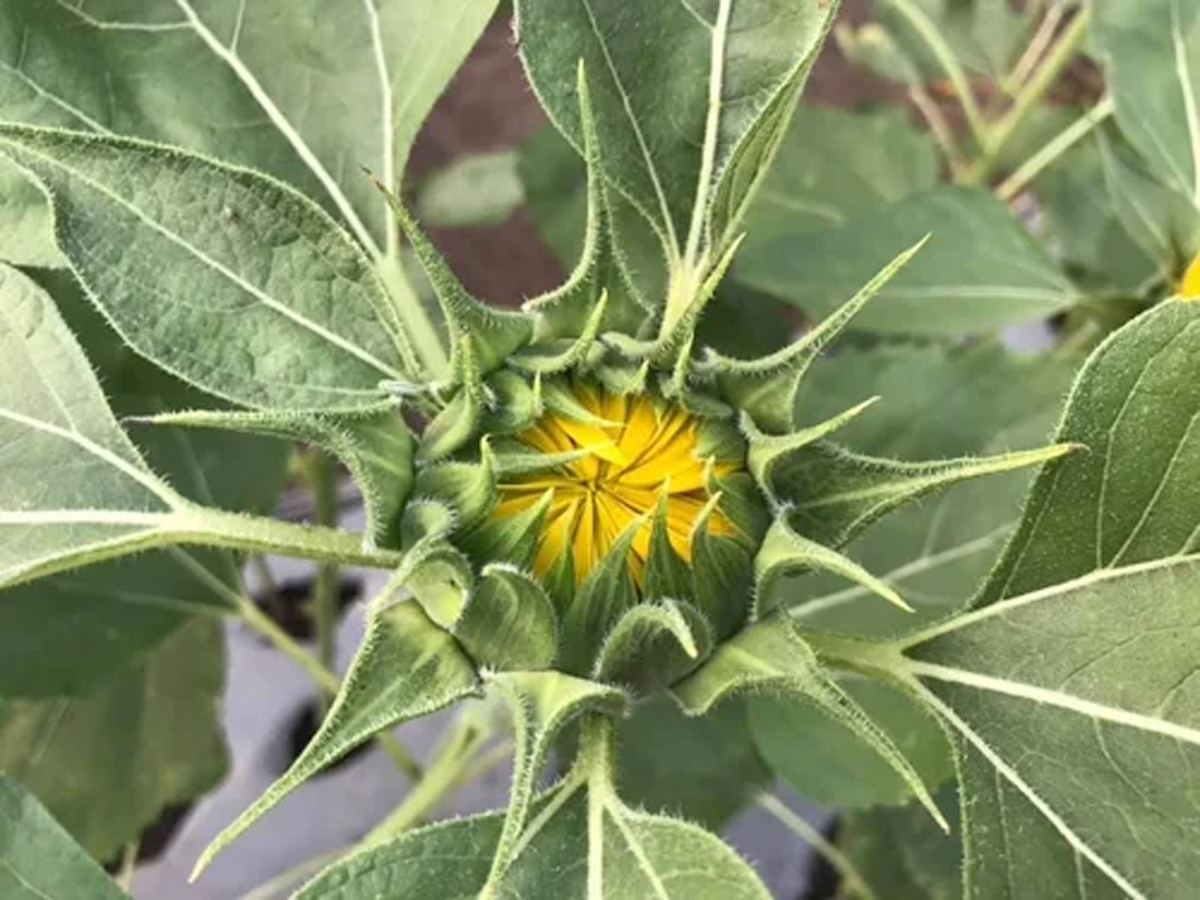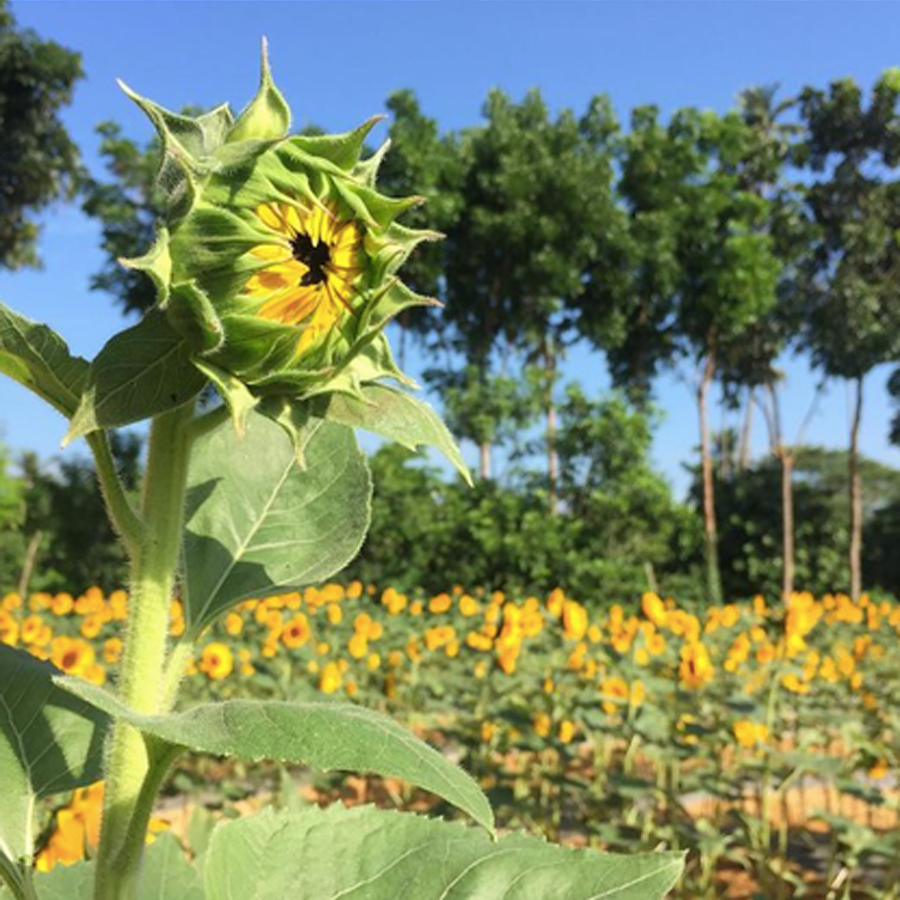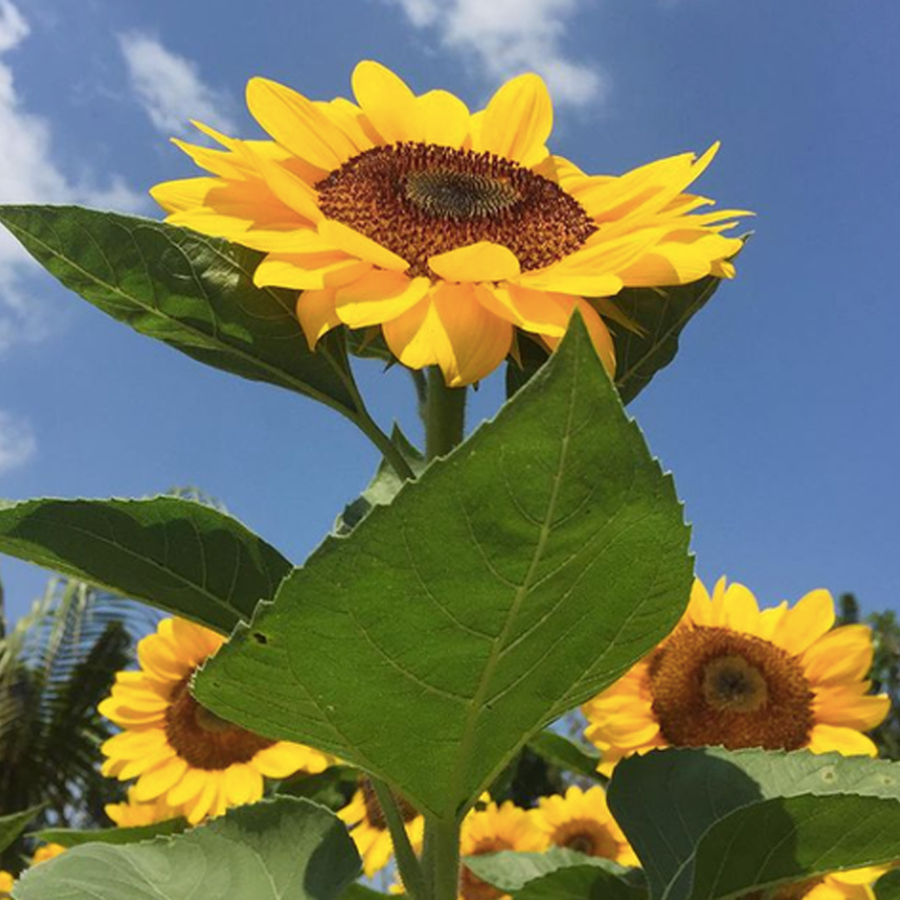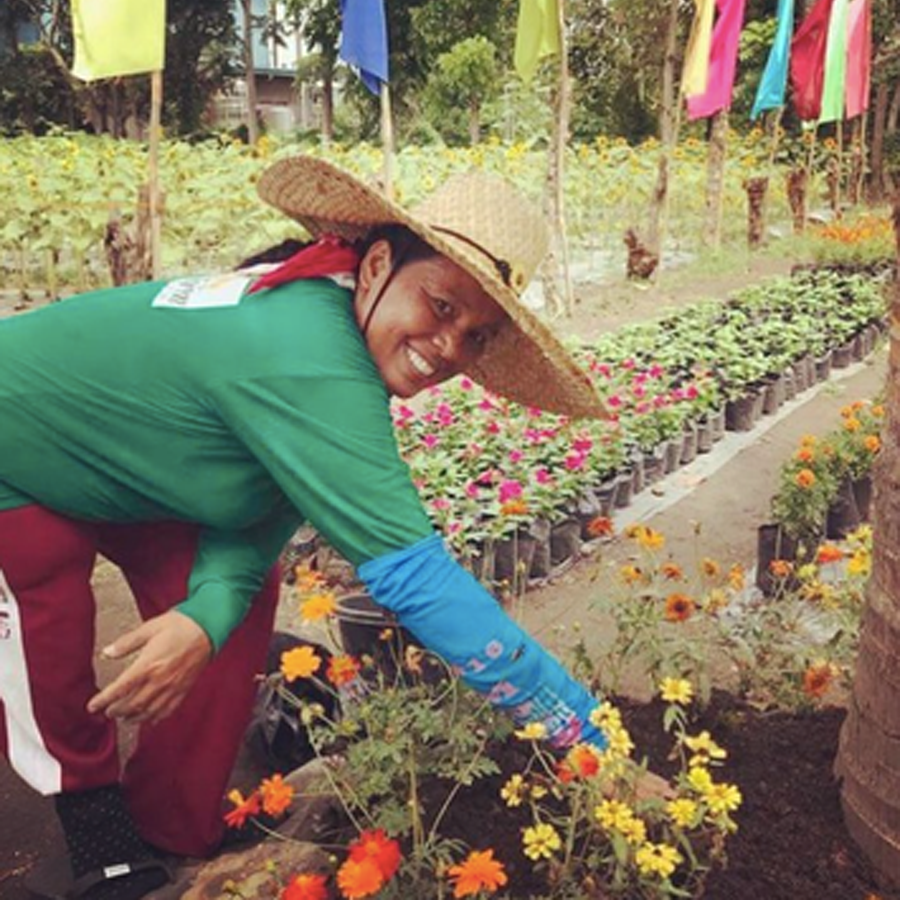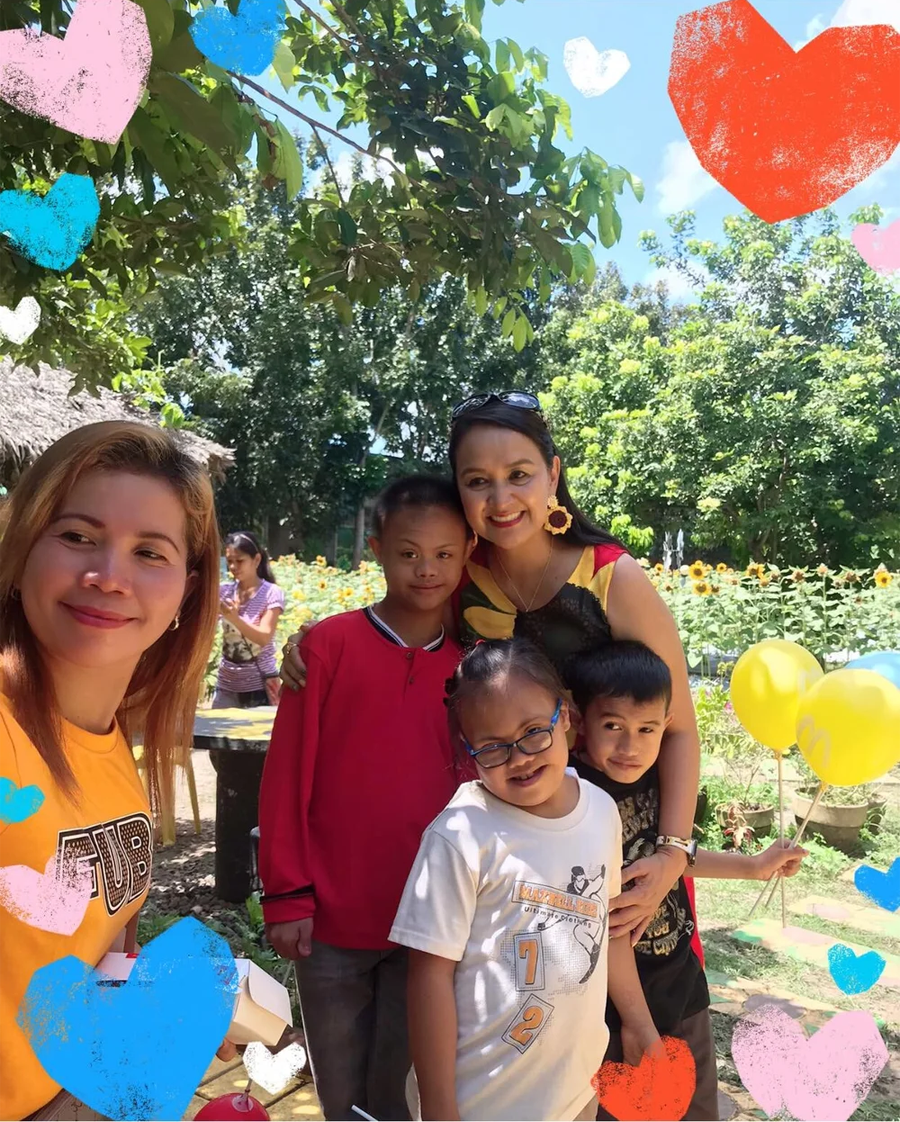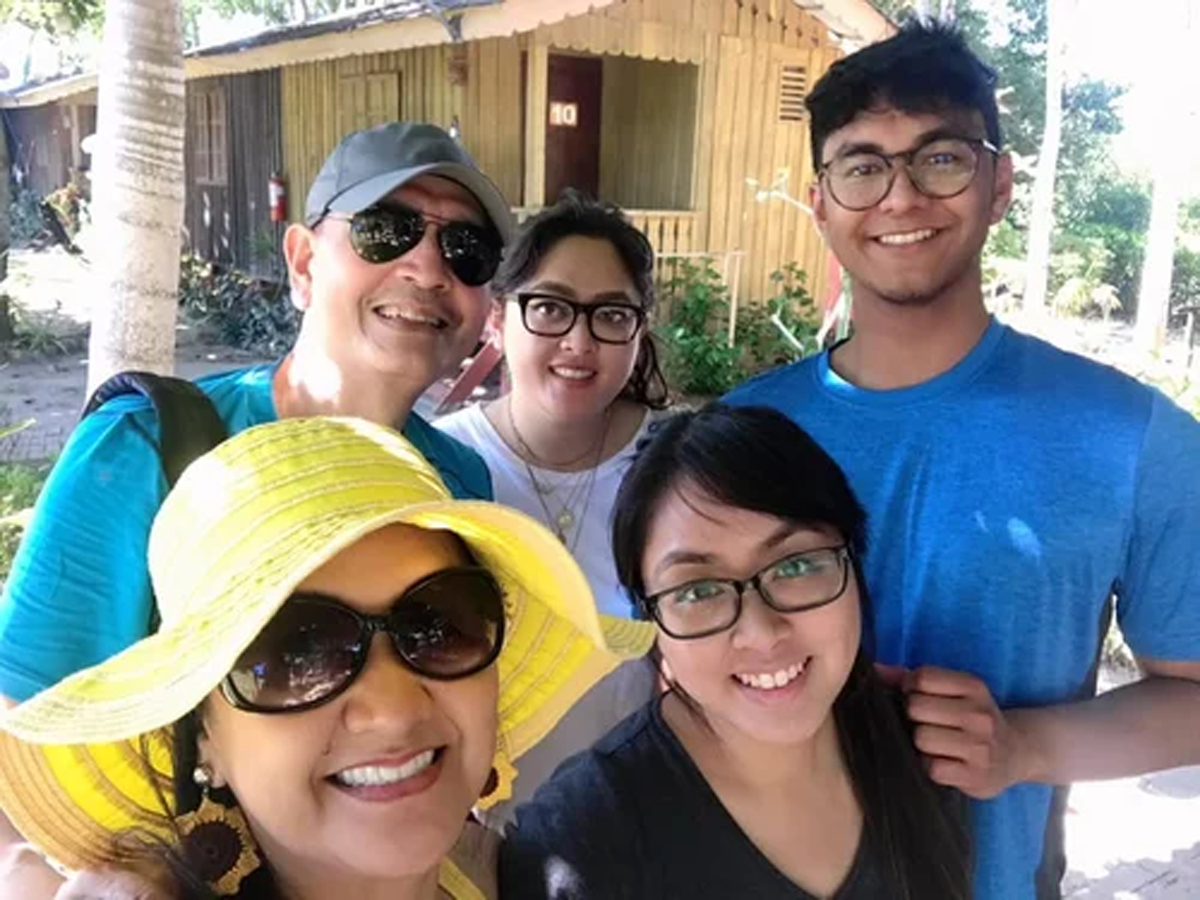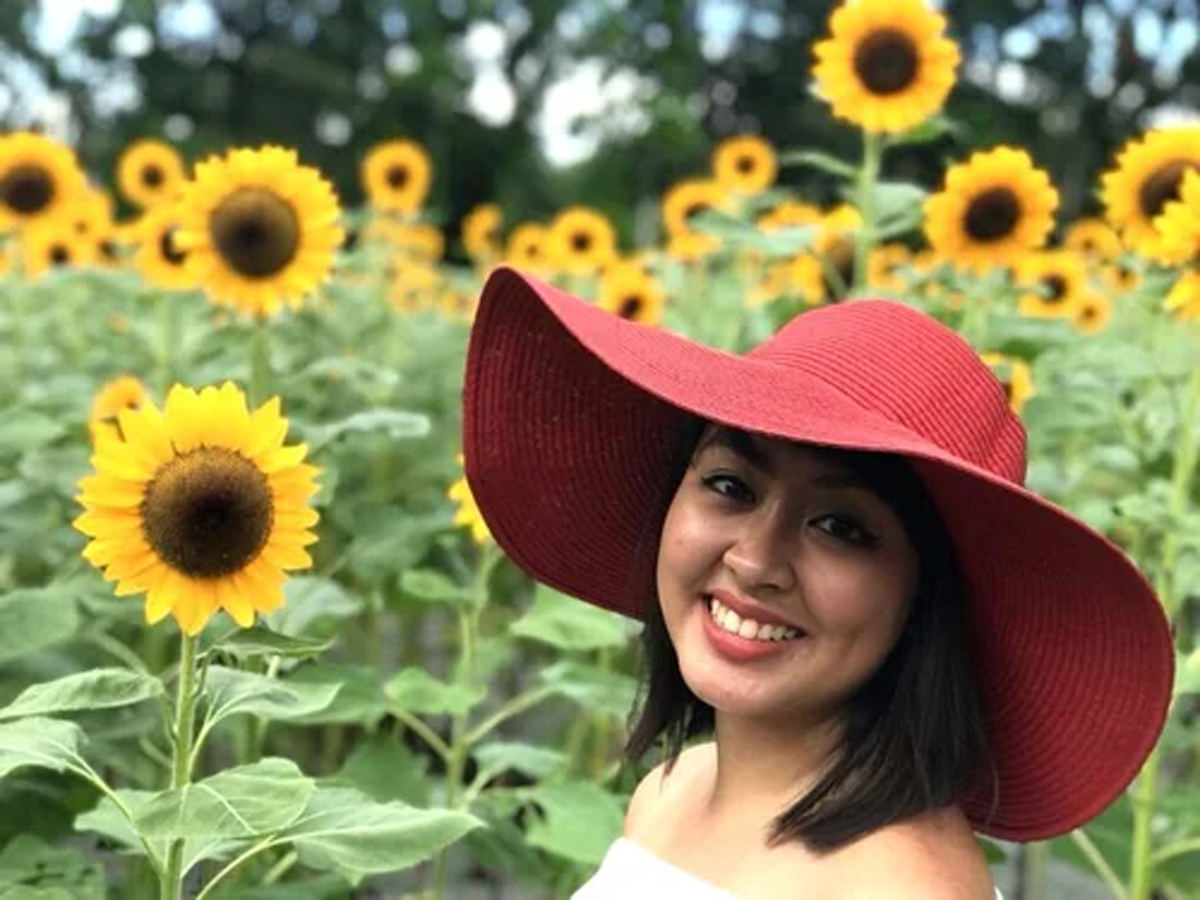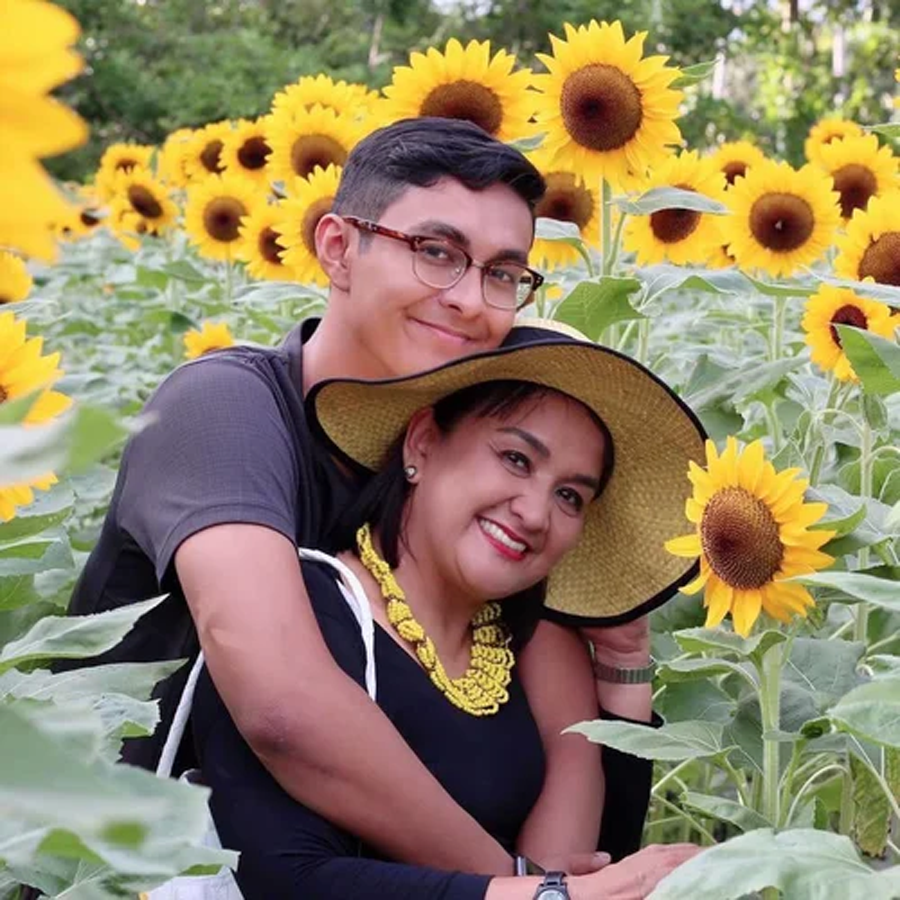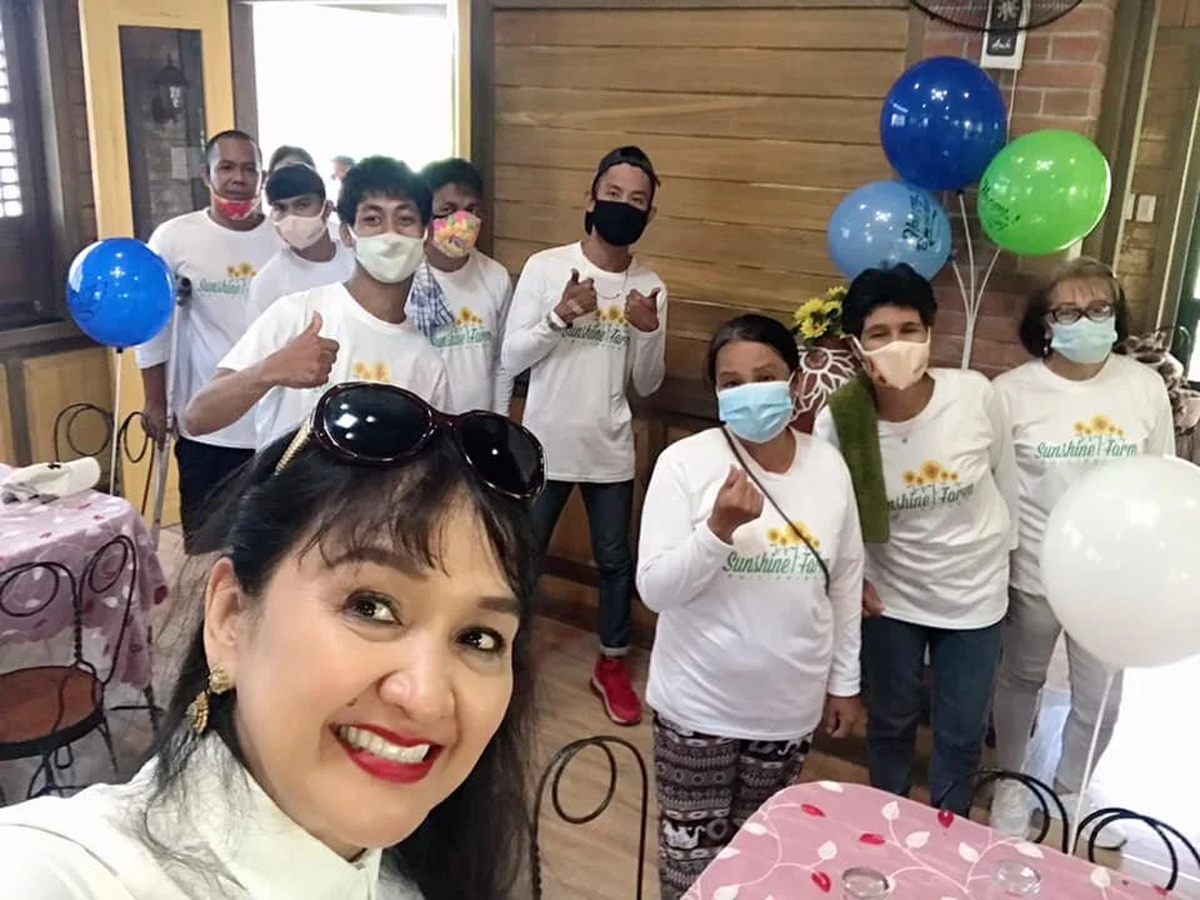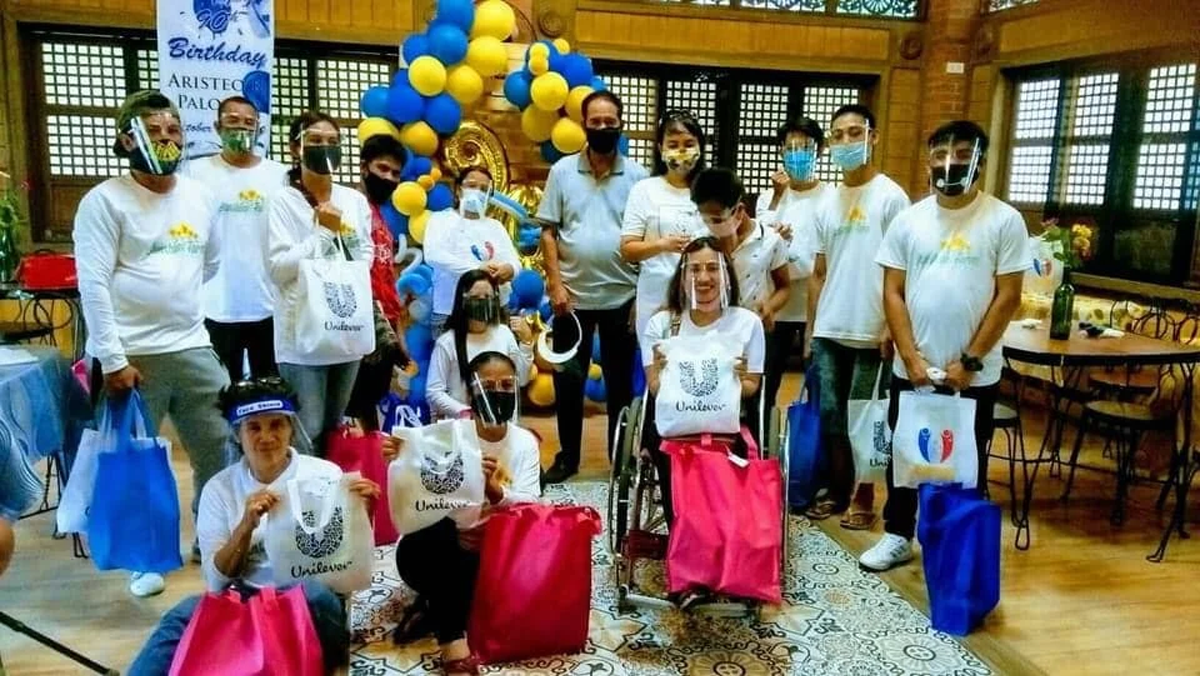If sunshine came in human form, she would look, sound and act like Rhodora Palomar-Fresnedi. An advocate for special needs and those with different abilities, she brings colour and hope to the marginalised sectors of society.
Rhodora’s latest venture, Sunshine Farm Philippines in the Province of Quezon, about two hours drive south of Metro Manila, is a garden where sunflowers and vulnerable lives bloom.
There is celebration amidst the golden blossoms as Sunshine Farm’s employees find their potential, after years of living with limitation. To suddenly be seen, to be given responsibility, to feel pride and dignity at work, to express who they are and tell their stories, all of these are worth honouring.
“There is pride and joy in producing something so beautiful!” beams Rhodora. “The advocacy and medium work together perfectly. The farm lifts the spirit of the visitors, and it uplifts those planting. It is magical!”
The idea of a farm came when Rhodora was winding down her job at Unilab Foundation in 2017. She was already working with children with autism and other special needs. The biggest concern of parents of children with autism is who will look after their challenged offspring after they are gone. There were ideas about creating a special place that would involve a wide ecosystem including the community.
Rachel Harrison, one of the mothers whose son has autism, invited Rhodora to a dinner along with some soil experts, an agriculturist and a horticulturist. There, Rhodora met Mike Caballes, the president of a seed company who was also growing flowers on the side. Spotting a photo of a field of sunflowers, Rhodora sat up and said, “I like that!” Her dream took shape: create a sunflower farm and employ Persons With Disabilities (PWD). She happened to own half a hectare of land in Tiaong, Quezon, where her father resides.
There were two challenges to making this happen. One was that sunflowers usually grow seasonally, in northern Luzon, not in the south where her land was located. The other was that Rhodora wanted the farm to exist to employ PWD. Both had never been done.
After much persuading, she convinced Mike to do a site visit, ordered 4,000 flowers to plant and found herself hiring her first employee.
Rhodora looked for a PWD farmer and met Edwin who was stricken with polio since childhood. Edwin planted vegetables but offered to quit and join her full time. Could he bring another recruit?
“Oooh, 2 salaries!” Rhodora cheered. She could easily find the resources to pay Edwin and Jay, who had been in a motorcycle accident that left him with partial brain damage and a permanent limp.
They decided not to plant all 4,000 blooms. The staggered planting meant they could have beautiful, bountiful patches with sunflowers in full bloom on rotation.
“Do you have a buyer for the flowers?” her father asked. “No, I’d like to keep them all!” Rhodora answered. Since she didn’t want to sell the flowers, someone suggested she charge an entrance fee to help cover expenses. “That means we need another PWD to sit at the front desk!” Rhodora said excitedly.
Sunshine Farm started planting in November 2017 and peaked during the cooler December and January holidays. Initial batches of blooms attracted a lot of attention. Because the plot was right by a busy roadside and the flowers were east-facing, they were visible to passing cars. One weekend, Rhodora woke up to photos taken at Sunshine Farm, shared 13,000 times on Facebook. Hundreds of people came, took photos, posted on social media, and launched Sunshine Farm as a unique destination in Quezon.
Soon, her photogenic farm was covered by the local and national media including TV networks that sent crews to do features.
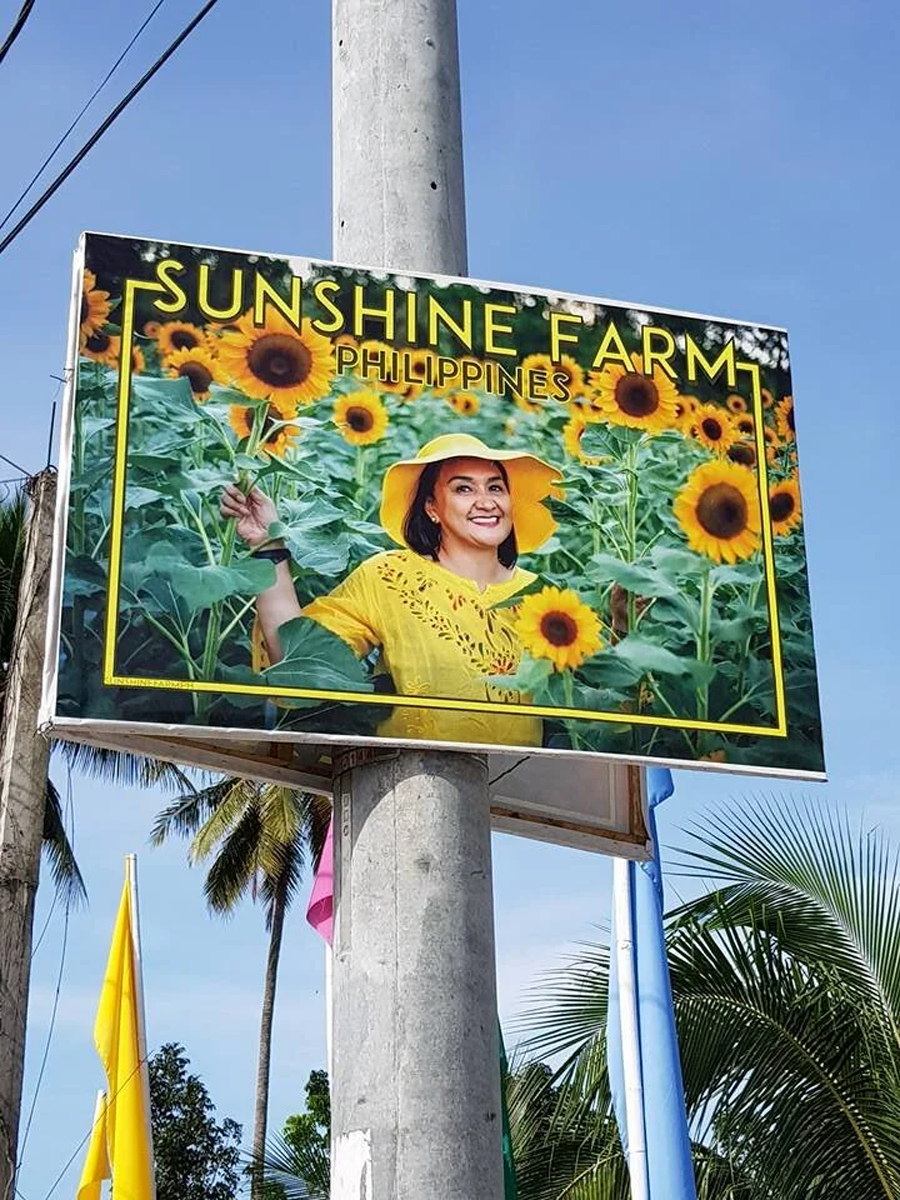
One of the most memorable exposures portrayed the love story between two of Sunshine Farm’s employees: Joy and Jay. Confined to a wheelchair because of an inoperable tumor at the base of her spine, Joy is the first person you meet at the front desk, and being very articulate, she gives you an introduction to the farm. Joy was employee number 3. Jay who was employee number 2 now drives his own tricycle, custom built for PWD. Theirs is a truly romantic story.
Sunshine Farm’s operations grew organically, thanks to visitors’ feedback.
- “Oh, you don’t sell the sunflowers, but can we buy other flowers?” > Create a nursery and hire a PWD to pot flowers for sale.
- “Can we have a tour and take photos?” > Create IG worthy features and hire PWD guides who can take pictures.
- “Can we have coffee and snacks?” > Build a café and hire PWDs to cook and serve food.
- “Can we have sunflower t-shirts, hats, bags, mugs?” > Build a shop and hire a PWD to organise inventory and one to sell.
In just four months, personnel grew from two to 15 PWD!
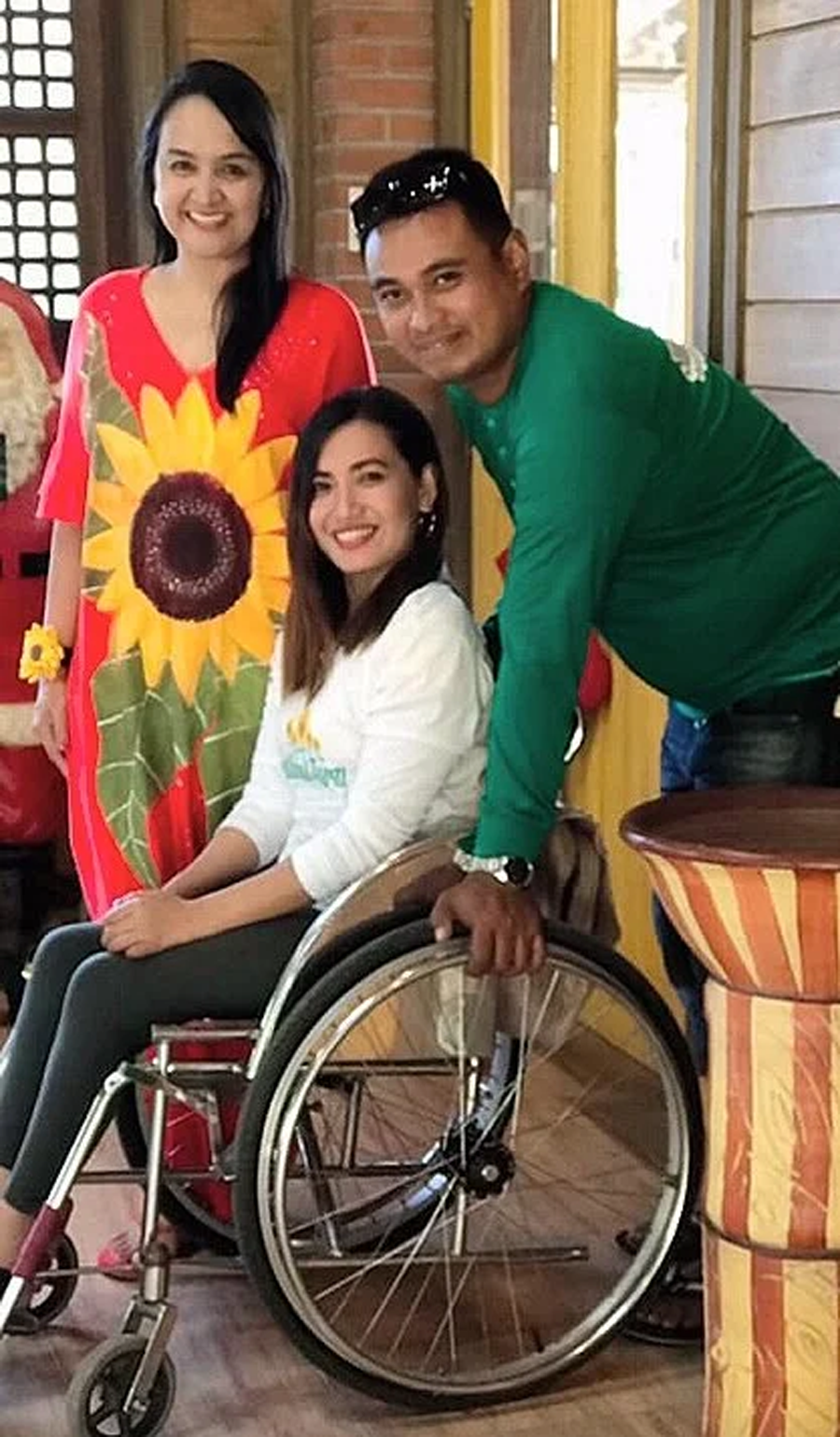
“There is so much pride the first time any of the workers put on a Sunshine Farm uniform and tell others, ‘I have a job, I’m on my way to work!’” reveals Rhodora. “Many of our first jobbers have progressed to other jobs with greater responsibility. One is now a consultant at the Mayor’s office. I am so proud of all of them.”
The visitors have heart-warming stories, too. There was the early morning proposal of a young couple before the gates opened. A cancer patient visited after her chemo treatment and was so uplifted by the experience. An overseas worker saw a television feature story and sent money home for the family to celebrate her mother’s 90th birthday at the farm. A young lady said her grandmother was so happy to come as she hadn’t been out of the house since her husband passed away the month prior.
“One person was wheelchair bound and blind but I held her hand and she said she could feel the beauty of the place!” shares Rhodora.
I met Rhodora in London in 1999 when we both worked at Unilever. She was this force of positivism that I was actually not prepared for. I had left the Philippines six years prior and was quite self-sufficient, looking after myself and my career. But Rhodora saw that I had more to give, and over the years I have leaned on her for career, love and life advice. An hour is never enough with her, and you emerge clearer about your direction, your own convictions, your gifts and your potential.
To write an inspiring story about Rhodora, I could have picked up from any chapter of her life: how she breezed through university two years younger than her classmates, where she met the love of her life, Jojo Fresnedi, who later became her husband. Or how she worked in San Francisco “where the women are strong and the men are beautiful, an early exposure to LGBTQ”. We could introduce her from when she joined the HR department of Unilever Philippines, taking the company to management highs that had never been seen. Then there was a chapter in Unilever Head Office in London where she bore down on the Chairmen and Board of Directors until they understood what Diversity and Inclusion really meant, calling out bad behaviour and institutionalising practices and metrics to make the cause sustainable. Following which, Rhodora moved to the Unilever Asia office in Singapore as the tide was turning and the world could no longer ignore Asian markets and talent in its future growth. Moving into healthcare at Unilab Philippines, running their Foundation and international markets, brought Rhodora closer to where she is today, advocating for PWD in whom she sees so much potential.
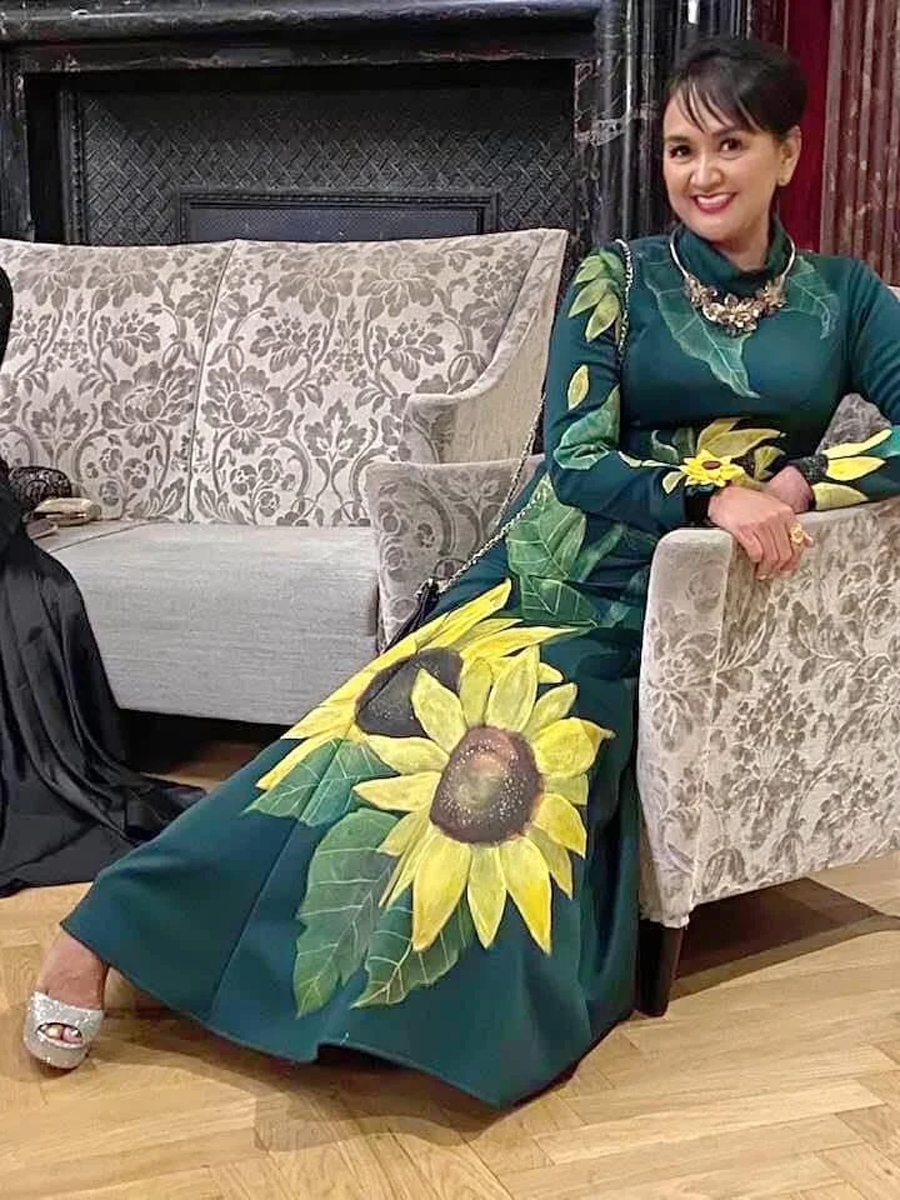
Where did this advocacy start, I ask. What was the spark? Rhodora recalls that when she was 19 years old and was studying and teaching at the same time, she had a student, Jeannie Ahorro, whose childhood polio left her with a bad limp. In those days, one wore a very heavy brace and Jeannie had to climb three flights of stairs to the classroom. “She wanted to be a doctor and I encouraged her. “‘Target it,’ I kept saying. ‘You can do it.’”
Rhodora and Jeannie recently found each other again via social media. Now a child neurologist in Manila, Jeannie was the former President of the Child Neurology Society of the Philippines, is currently President of the Philippine League Against Epilepsy and an advocate for PWD. She has volunteered at Sunshine Farm. “I was your first PWD!” claimed Jeannie proudly to Rhodora.
“I guess I was always sensitive to people who seemed to need a leg up,” says Rhodora. In her corporate career, she was described to have shattered the glass ceiling. “It’s about having more people go through. You feel a sense of responsibility to leave the door wide open for others.”
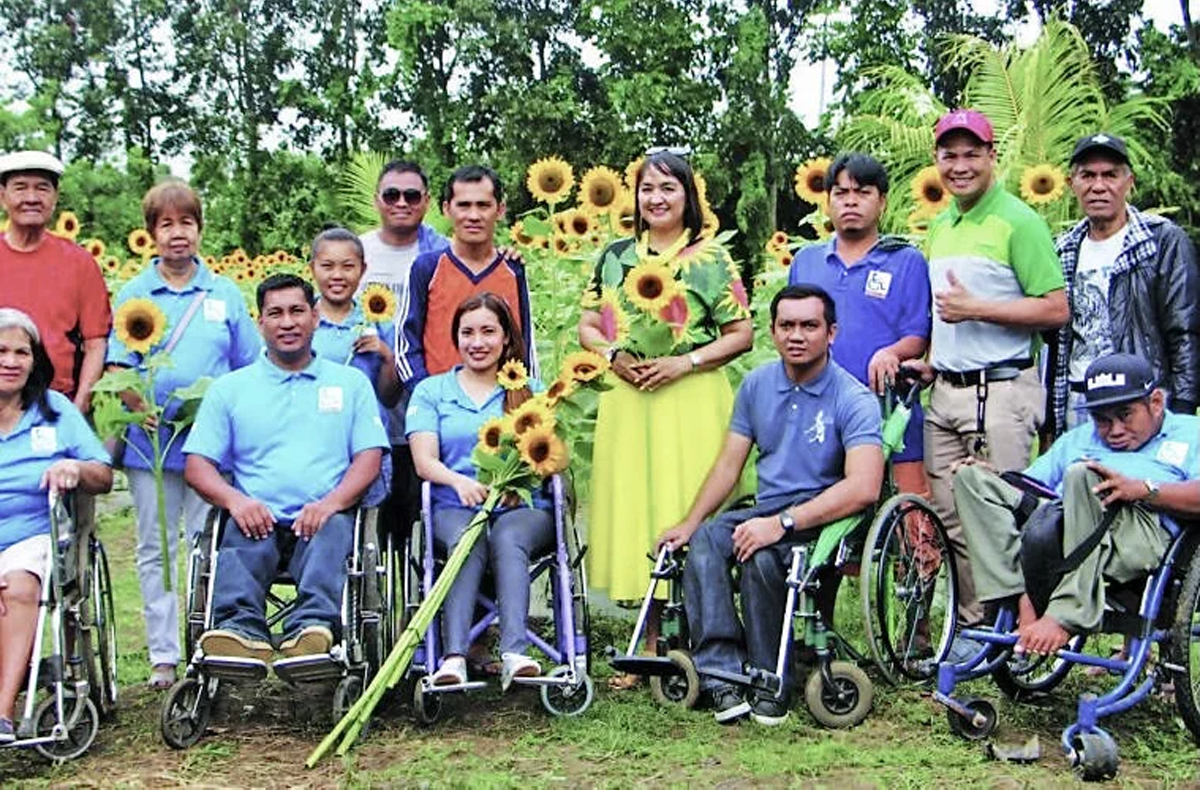
Rhodora’s biggest ongoing challenge is to address the mindset of both workers and guests of Sunshine Farm. She would like the workers to believe, “I can do this, I have the potential to lift myself out of the long-held limiting belief that this is all I am capable of (“hanggang dito lang ako”). She would also like guests to treat PWD as equals, not to look at them with pity, or treat them as less.
“They have ‘different abilities’ not disabilities,” Rhodora uses the proper language.
There are 3 key messages that Rhodora advocates at Sunshine Farm.
- “May kakayanan ang may kapansanan.” (Persons with disabilities have abilities). “We need to see past their disabilities to recognise that they can make a contribution. The farm is designed around each person’s unique ability,” states Rhodora. One autistic worker loves to sweep, so all day that’s what he does. A worker with degenerative muscular dystrophy is the designated cook. One designs and paints pots the whole day. Another one is not mobile so he is in-charge of inventory. “It’s really about matching their skill set to what needs to be done, which is basic even in any company.”
- “Nagbibigay, hindi lang binibigyan.” (They are capable of giving, not just receiving). This is about shifting the mindset that PWD are needy or helpless. “I would like for them to believe in themselves as givers.” Giving is empowering. It is energising to hear about a disabled mother using her own salary to send her child to college. Another employee has taken on his niece as a scholar and is paying for her education. “During the pandemic when we give them “ayuda” (assistance) we encourage them to take a portion and share the rest with others.”
- Inspiration, not obligation – An inclusive way to regard PWD workers is to use their stories as inspiration. “The farm gives them the opportunity to inspire us. They have similar background stories: they were bullied, some dropped out of school, their lives became limited. But many of them were not lacking in mental capacity. They think, ‘I may be handicapped but I am not stupid.’ Distance learning has in fact helped the current workers improve their knowledge. Allow them to inspire you.”
“For me, I am building a model. It can be done!” Rhodora asserts. “From its second year, Sunshine Farm was self-sustaining.” The farm collects revenue from the donation at the door, the souvenir shop, plants and flowers for sale, the restaurant, holding events and special occasions and “Tita Sunshine” (Auntie Sunshine) wellness products.
“With such positive impact, we should do more of this!” Rhodora is working on joint ventures to create Sunshine Farms in other parts of the Philippines, although these projects are temporarily on hold due to the pandemic.
“I am also thinking about ‘livelihood huts’ where one hut will have hand-painting of dresses, another hut can do candle-making, one hut can make masks.” Rhodora is not lacking in seeing possibilities.
In the Philippines, it is estimated that 15% of people have some form of disability and half are employable but not employed. With a population of over 100 million, that means 7.5 million can be part of the workforce.
“That is a waste of talent and human resources!” Rhodora laments.
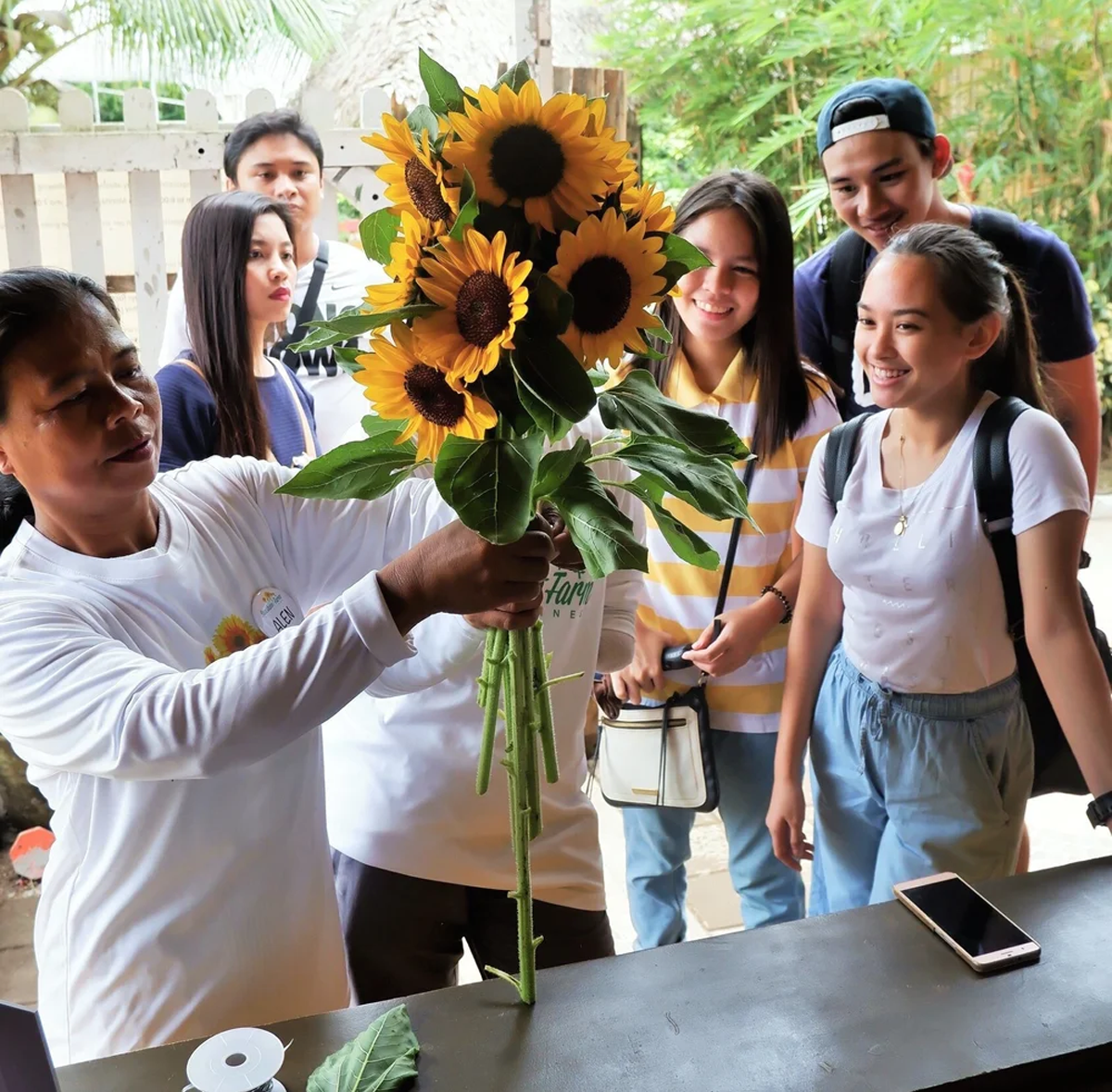
The pandemic has been difficult. “But I promised my employees jobs and with that, hope. You can’t take away hope. We continue to pay salaries, have even extended loan facilities because things like wi-fi expenses for home-based learning have been difficult.” Fortunately, friends have been supportive in contributing, and although ad hoc, they are making ends meet.
Michelle Obama once said, “Success isn’t about the amount of money you make, it’s about the difference you make in people’s lives.” By this definition, Rhodora is one of the most successful people I know.
Roxanne | ws
Facebook : @sunshinefarmPH | IG: @sunshinefarmPH | Tripadvisor: SunshineFarmPhilippines
To share your skills or sponsor a Christmas hamper for the workers: contact Nette Tinana

